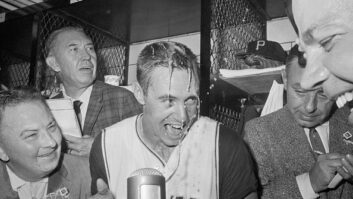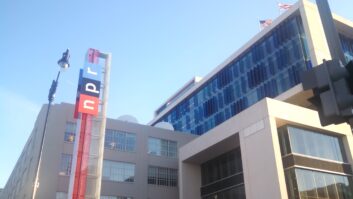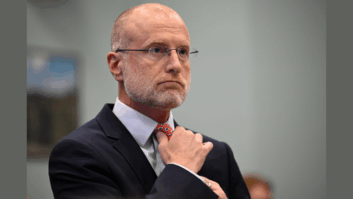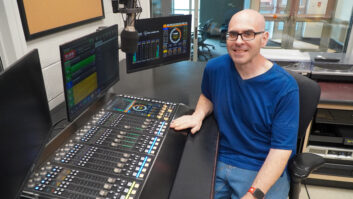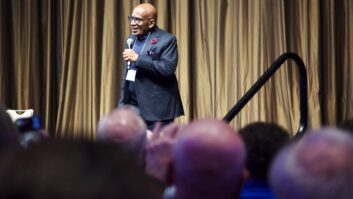Even though we are halfway through 2010, the 2009 additions to the Library of Congress’ National Recording Registry have been announced. As in previous selections, the 25 chosen recordings are a wide-ranging lot, though one might have a gripe with the domination of “pop” tunes from the past several decades.
For radio fans, two selections were chosen that will be of interest, both from NBC’s radio operations. From 1935 is a recording of the Metropolitan Opera performing Wagner’s “Tristan und Isolde” in its Saturday matinee format. The leads were Kirsten Flagstad and Lauritz Melchior, both considered premier Wagnerian voices. The Metropolitan Opera continues airing programs to this day.
The second is a “Town Meeting of the Air” program from May 8, 1941. Hosted by creator George V. Denny, this particular show featured a debate between theologian Reinhold Niebuhr and America First Committee founder John Flynn on whether to provide material support for England in its conflict with the Axis powers.
The oldest recording in 2009’s class is one of the earliest recordings of a group of “klezmer” songs, “Fon der Choope” by Abe Elenkrig’s Yidishe Orchestra.
Perhaps the most unusual is a collection of recordings of material from the Pacific front lines during the battle of Guam, July 20 to Aug. 11, 1944. The recordings were made by war correspondents and include sounds from the battlefield, camp activities, post-battle awards and clips of locals commenting upon their recent Japanese occupiers.
Also of nonmusical interest are a series of recordings made by Leon Metcalf in Washington state during the early 1950s of Native Americans speaking in their traditional tongues.
Interestingly, two early synthesis works are included: a 1961 recording of a synthesized human voice singing “Daisy Bell” (also known as “Bicycle Built for Two”) from Bell Labs using an early IBM 704 computer, and “Silver Apples of the Moon” from Morton Subotnick using an early music synthesizer in 1967.
The majority of the selections, however, are more familiar to Baby Boomers. Admittedly some are debatably important: Little Richard doing “Tutti Frutti,” Loretta Lynn and “Coal Miner’s Daughter,” “Radio Free Europe” by R.E.M. and “Dear Mama” by Tupac Shakur, along with albums “The Band” by The Band, “Red Headed Stranger” by Willie Nelson, “Horses” by Patti Smith and the original cast recording (incl. Ethel Merman) of “Gypsy” … Should national resources and limited audio archive facilities be used in archiving readily available audio material?
More understandable inclusions are from bluesmen Howlin’ Wolf and Mississippi John Hurt; King Oliver’s Creole Jazz Band (with Louis Armstrong), Ukulele Ike, Iry LeJeune, Eddie Palmieri; material that can’t be found at the local Best Buy.
The National Recording Registry of the Library of Congress is built, 25 recordings at a time, by the Librarian of Congress, advised by National Recording Preservation Board. It is nominally supposed to collect recordings that are culturally, historically or aesthetically significant and at least 10 years old. The purpose is to make sure the recordings are always available to the American public — assuming that is they can travel to the library and then navigate the library bureaucracy in search of suddenly unavailable Willie Nelson and Tupac Shakur tunes, tunes found easily on that newfangled medium that the Library of Congress seems unaware of, the Internet.
